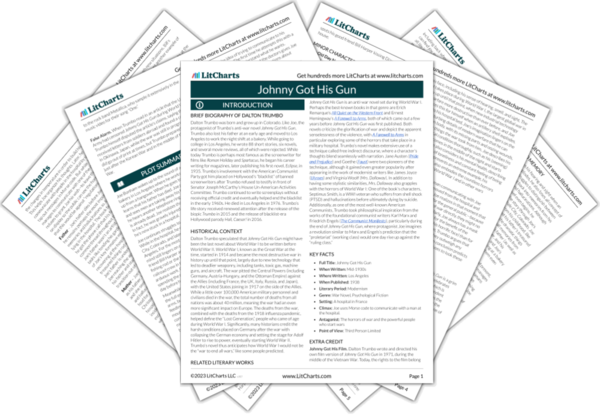Book II of the novel is subtitled “The Living,” and while it also deals with the consequences of war, it also has a few hopeful moments, mostly related to Joe’s attempts to regain control of his life. Dawn is a common symbol of hope and new beginnings, and so Joe imagines that he can see the dawn because his new ability to keep track of time has given him a new lease on life. Joe’s belief that he’ll always have the dawn somehow suggests that all people, even those in seemingly impossible predicaments, have the potential for hope.


